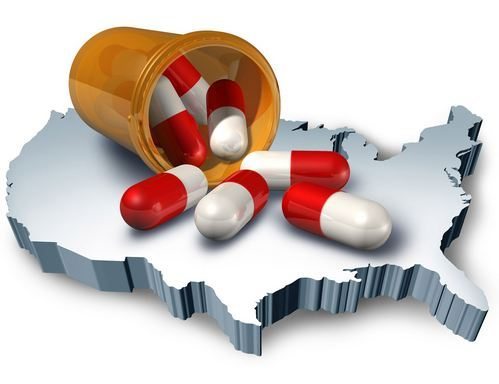Ridgeland, Miss. – In State of Affairs we have explored Tennessee’s heroin and prescription drug use problem, followed by Texas’ issue of high grade P2P Meth making its way across the border. This week we travel to the Magnolia State where prescription drug use is still the leading drug of choice; however, there is a more sinister assassin making its way around college campuses. In our conversation with Daisy Carter of the National Council on Alcohol and Drug Dependence Mississippi division, we learned about a drug called 25-I that’s recently left a college hopeful dead, and a 19 year old diagnosed with schizophrenia.
Thomas Parker Rodenbaugh (Photo courtesy: The Clarion Ledger)
According to the Clarion Ledger, 22 year old Thomas Parker Rodenbaugh was found unresponsive at Mississippi State University from an apparent drug overdose. Rodenbaugh’s aunt had just dropped him off that week to start school. Carter’s office heard that Rodenbaugh had gotten hold of some marijuana that unknowingly contained a drug called 25-I.
“Little is known about this drug,” says Carter. “We know that it’s synthetic and gives a similar effect to LSD. We know it’s manufactured overseas. Our office has heard Asia, but that is not confirmed.”
Daylin O’Kelly Skylar O’Kelly
(Photo courtesy: The Clarion Ledger)
Two brothers, Daylin (19) and Skylar O’Kelly (21), were charged with manslaughter in connection with Rodenbaugh’s death.
“Marijuana has its own set of dangers, but people are now buying it not knowing what is in it,” says Carter. “It could be laced with 25-I or who knows what else. They could be smoking another, more dangerous substance and not have a clue.”
Rodenbaugh’s isn’t the only incident. A 19 year old in neighboring Madison County, Mississippi smoked some weed laced with 25-I and survived, but has now been diagnosed with schizophrenia.
Carter, who recently spoke at the local Rotary Club about prescription drug use, says while the 25-I is an acutely dangerous drug, prescription drug use is a more widespread problem.
“I asked them ‘How many of you have old prescriptions in your cabinet?’ and almost everyone raised their hand,” says Carter. “I asked them how many of those were prescription pain medicines, and while some weren’t even sure, most of the people kept their hands up.”
As State of Affairs travels the United States, we’ve learned in our past 3 articles that most of the circulation of prescription pain meds is not on the street. They are in our cabinets, and usually circulated and sold among family and friends.
“In our medicine cabinets we keep old opiates, stimulants, hydrocodone, antidepressants,” says Carter.
The state has a number of initiatives to try to help the problem.
There is currently legislation proposed that would expand the prescription drug monitoring program to surrounding states. This would help fight people going out of state to avoid getting caught doctor shopping. This is a process by which a patient goes around to multiple doctors asking for pain meds without keeping each of them in the loop. There is currently a monitoring program that does a similar check within the state, but not one for inter-state shopping.
Carter’s organization is currently working with law enforcement to educate the public on how to properly dispose of medication.
“A lot of people think you can just flush them down the toilet and it’s fine,” says Carter. “But some of these elements can get into our water supply, and we don’t want that.”
Carter says the best way to dispose of old medication is to take it out of the bottle completely and bury it in a mix of coffee grounds and dish washing liquid before you throw it away. This will cause the medicine to dissolve quicker and it will be less likely that someone could find it and consume it.
Local law enforcement has also been working with NCADD on setting up disposal locations throughout the local counties – boxes where people can just drive through and dispose of their hydrocodone, benzos, ect.
“It’s ironic because when I travel to middle schools and high schools to educate students, sometimes I actually learn about new drugs from them,” says Carter. “That’s how I first learned about Dirty Sprite.”
Dirty Sprite, aka Sizzurp, similar to the makeup of the Houston Cocktail, is a mixture of cough syrup, sprite and a jolly rancher for extra flavor. Carter says often students will tell her things they maybe wouldn’t feel comfortable saying in front of a teacher or their parents.
NCADD helped pass the Social Host Law in 2011, which enforces criminal penalties on any adult throws a party and a minor is present and obtains alcohol with their knowledge.
The good news? While Mississippi surpassed the national average in illegal drug use just after Hurricane Katrina, it hasn’t seen a spike in heroin like the other states – yet. It has remained stagnant. Meth use has also remained low since law enforcement launched a crackdown on labs in recent years. Still, with drugs like 25-I randomly surfacing in marijuana and prescription drugs so widely circulated, the Magnolia State has work left to do. Carter says their focus is education and prevention, which, as a small non-profit, is not easy on their budget.
“Our funding gets cut every year,” says Carter. “There is more money spent in recovery than in prevention. Recovery funding is necessary, but so is education and awareness.”
Daisy Carter is a native of Jackson, Mississippi. Carter attended Jackson State University where she received a Bachelor of Art in English and a Masters Degree in Public Policy and Administration. Daisy joined NCADD in January 2010 as the Prevention Specialist and now currently serves as Director of Programs. Carter feels that NCADD is doing the State of Mississippi a great service by reaching out to youth and influencing them to make positive decisions.
If you or someone you know needs help, call our 24/7 toll free hotline at 844-470-0410.


